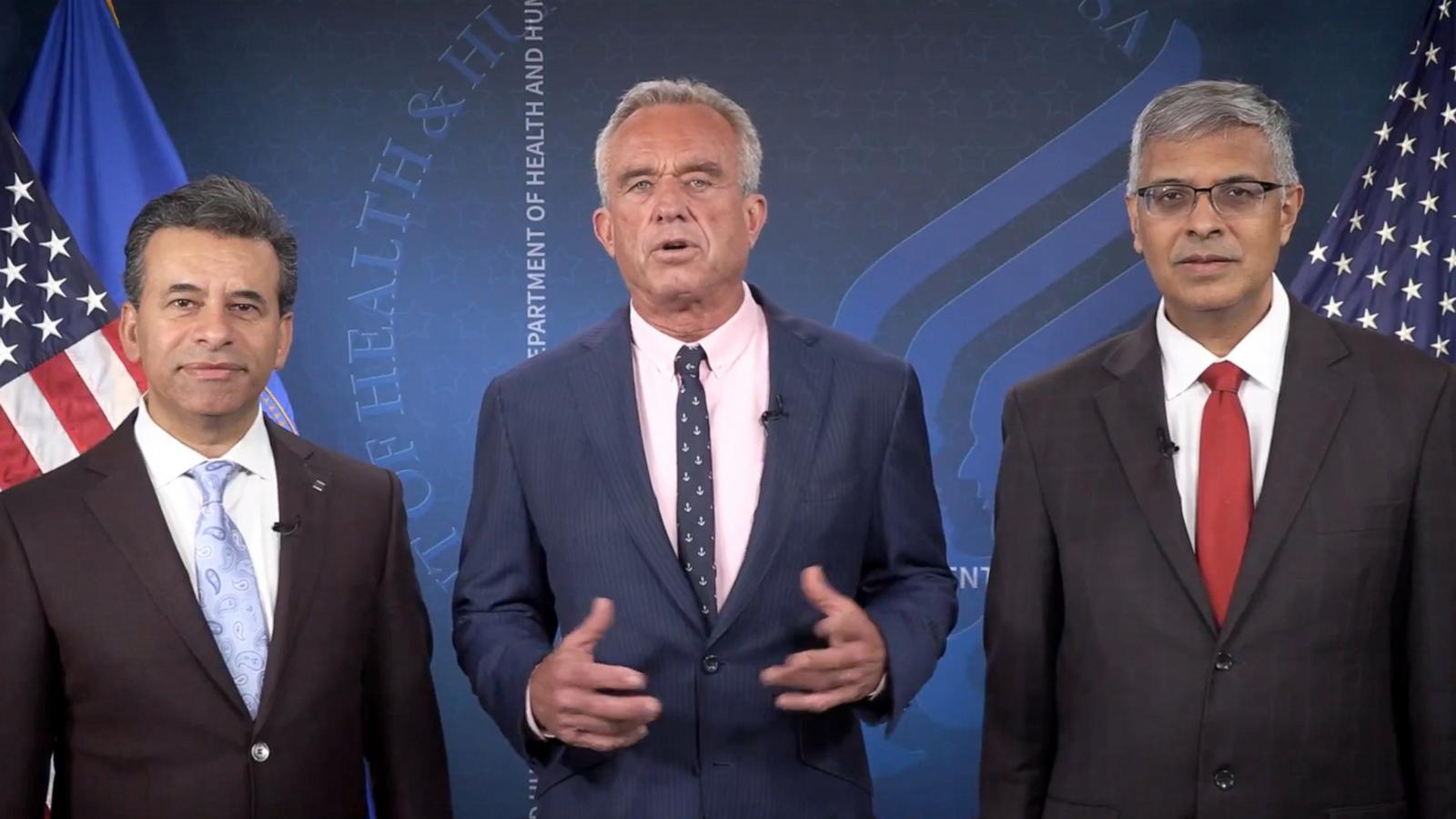Earlier this week, Health and Human Services Secretary Robert F. Kennedy Jr. announced in a video posted on X that the Centers for Disease Control and Prevention would no longer be recommending COVID-19 vaccines for “healthy children and pregnant people.”
In the video, Food and Drug Administration Commissioner Dr. Marty Makary said there is no evidence that healthy children “need” the vaccine. National Institutes of Health Director Jay Bhattacharya also appeared in the video.
Public health experts said they were surprised by the way the decision was announced.
“The risks are real of COVID but, in general, for an otherwise healthy kid, the bad stuff is thankfully on the low side,” Dr. Gregory Poland, a vaccinologist and president and co-director of the Atria Research Institute, which focuses on disease prevention, told ABC News.
“But you have to keep remembering that the risks of the vaccine are lower still,” he continued. “You can get the vaccine and get infected, but your infection will be much less severe, or you cannot get the vaccine and get infected and have far higher rates of illness and complications and even a risk of death.”
Risks of COVID in children
The current COVID-19 vaccine, the updated 2024-25 shot, was until recently recommended for all Americans ages 6 months and older.
While those with one or more underlying conditions are at higher risk of severe COVD, anybody who becomes infected with the virus can be hospitalized, develop severe disease and die.

When the CDC’s Advisory Committee for Immunization Practices (ACIP), which provides advice and guidance on the control of vaccine-preventable diseases, presented data at its last meeting, it “showed that 152 children died last year of COVID. 40% of those children were perfectly healthy,” Dr. Paul Offit, director of the Vaccine Education Center at Children’s Hospital of Philadelphia, told ABC News.
“So when [Kennedy] says he’s not recommending the vaccine for healthy children, that flies in the face of data,” he added.
Offit explained that usually it’s the ACIP that discusses if there is a benefit to a yearly vaccine and who should get it. The independent advisory committee then makes recommendations to the CDC, which has the final say on who should get what vaccine.
“That’s not the way this played out. You basically had three men standing up in a little Twitter event making this declaration … without any input from the public, without any input from experts, just these three people, specifically RFK Jr. at the center,” Offit said.
There is also a risk of long-term side effects even in otherwise healthy children, according to experts.
As of 2023, more than 1 million U.S. children may have been affected by long COVID at some point, a CDC study published in February found.
At the time the survey was being conducted, approximately 293,000 children were experiencing the condition.
“About a million U.S. kids, it’s estimated, have [had] long COVID,” Poland said. “If you get the vaccine, you can reduce that risk. Getting the vaccine decreases ER visits and hospitalization by about 40%.”
A CDC-led study, published in February found that COVID mRNA vaccination lowered the risk of having at least one or two long COVID symptoms in children ages 5 to 17.
Poland and Offit said there is also a community benefit from being vaccinated. When otherwise healthy children are vaccinated, it protects vulnerable members of the community from infection.
Although immunity wanes, COVID-19 vaccines do, at least temporarily, provide some protection against transmission.
“I would say the primary benefit is to the actual child who gets immunized. There’s a secondary, but admittedly transient, benefit to the community,” Poland said. “The protection against transmission is short-lived. It’s there for a period of time. It’s there, but it’s transient. But when you do it across a community, you get added benefits.”
Questions remain on new policy
Offit said it’s unclear if Kennedy’s announcement means the CDC will no longer recommend COVID vaccines to healthy children who are previously vaccinated or up to date on vaccines or if the announcement applies to all children regardless of vaccination status.
“I assume what he’s saying is that otherwise healthy children who have been fully vaccinated don’t necessarily benefit from a yearly vaccine,” Offit said. “If that’s what he means, that’s what he should say. He didn’t say yearly dosing. He said ‘healthy children.'”

Federal health officials also did not elaborate on what “healthy” children means, which the experts said is bound to lead to some confusion.
Poland said this is because Kennedy has made previous public comments on the growing rate of chronic disease in children, which could mean that he considers many children “unhealthy.”
For example, in the White House’s Make America Healthy Again Commission report on chronic disease, which was published last week, it cited an unnamed study that allegedly found 77% of young Americans are ineligible for military service due to chronic conditions.
“That’s saying, in effect, that 77% of the U.S. childhood population is not healthy,” Poland said.
ABC News: Top Stories
Read the full article .


